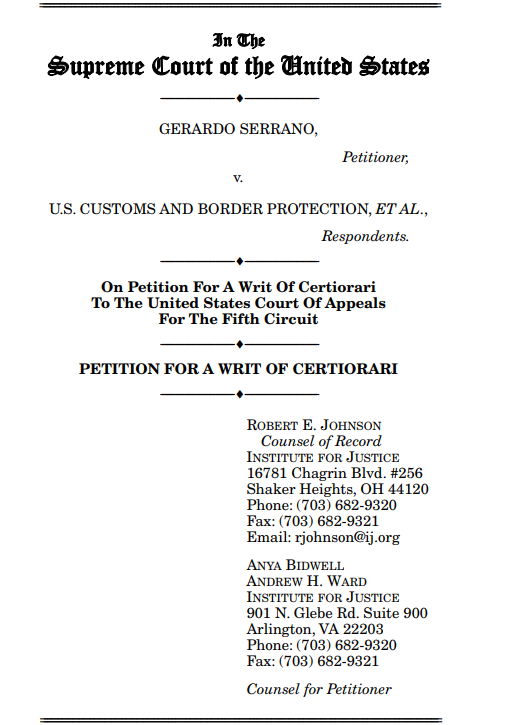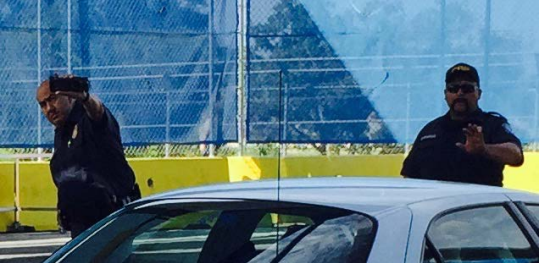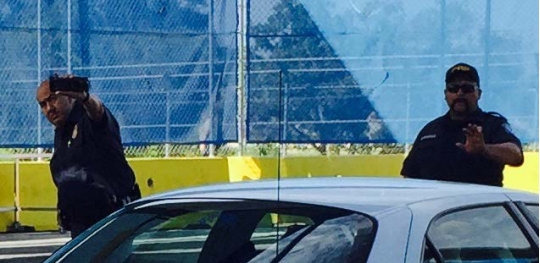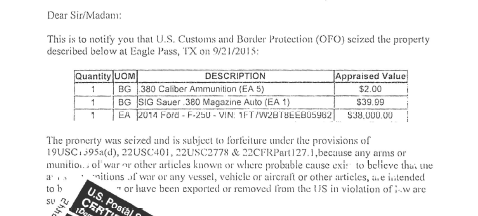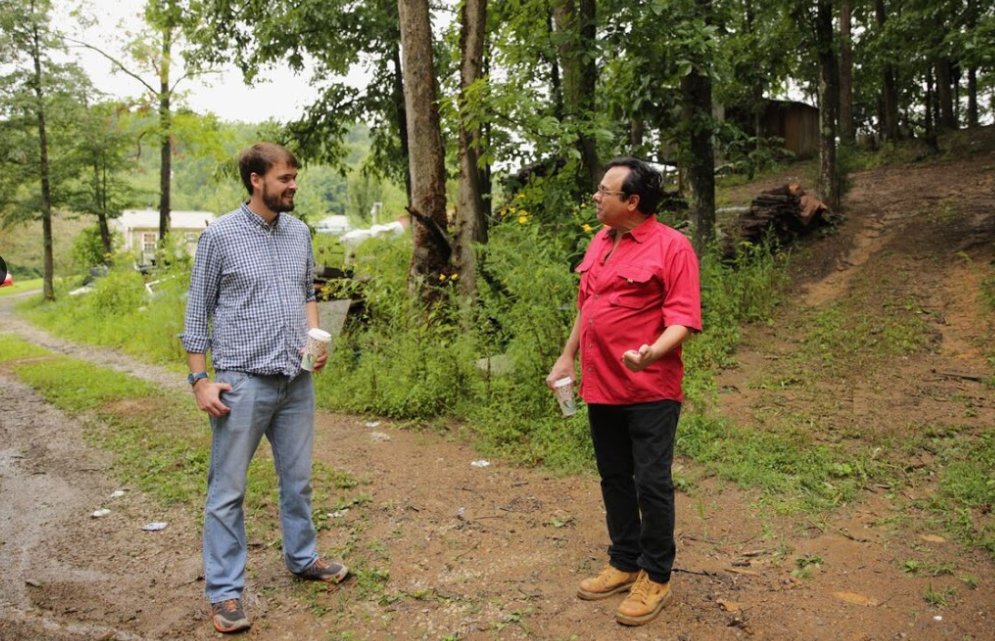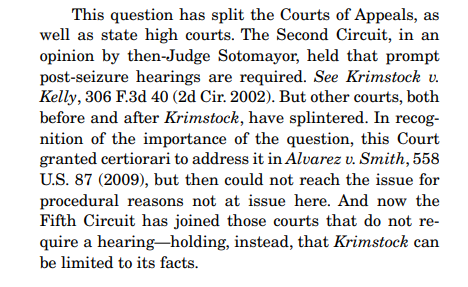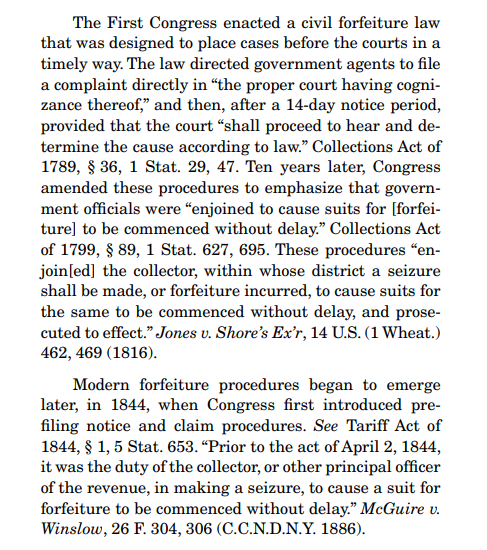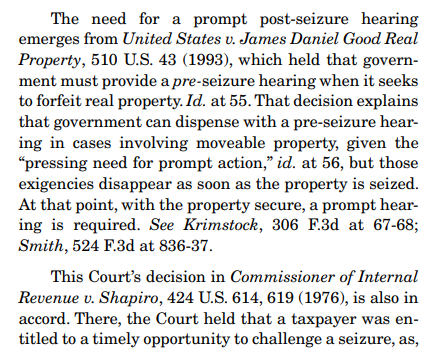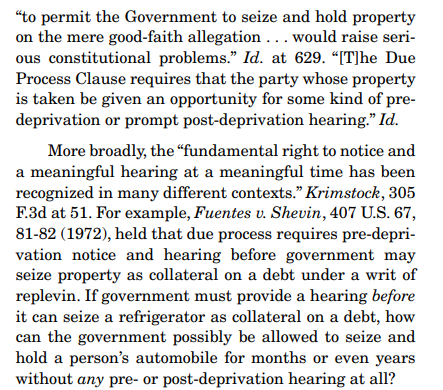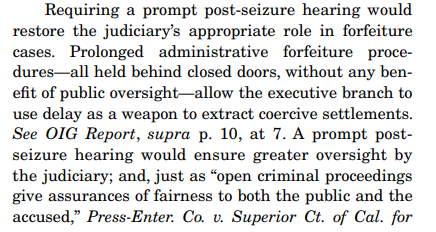It all started five years ago, when Gerardo was driving from his home in Tyner, KY, to visit with family in Mexico.
Here's a picture of Gerardo at his home in KY.
Here's a picture of Gerardo at his home in KY.
Gerardo was crossing the border at Eagle Pass, in Texas, and wanted to update friends and family about his progress. So he got out his phone and started taking pictures.
These guys . . . weren't so pleased.
These guys . . . weren't so pleased.
So the CBP agents pulled Gerardo out of his truck and asked him for the password to his phone. Gerardo's pretty fond of his civil liberties (he's even run for office on a platform of respect for the constitution), and he told the agents to get a warrant.
Instead, they searched his truck, and, in the center console, found five .380 caliber bullets. For those who don't know guns (not a gun person myself) that's a very low caliber bullet.
Gerardo has a concealed carry permit, and he simply forgot the bullets were in the truck.
Gerardo has a concealed carry permit, and he simply forgot the bullets were in the truck.
So, based on those five bullets the agents seized Gerardo's F-250 pickup. Gerardo left the border facility on foot. And then they sent him a notice . . .
They were taking the truck through civil forfeiture, on the theory that Gerardo was exporting "munitions of war."
They were taking the truck through civil forfeiture, on the theory that Gerardo was exporting "munitions of war."
And here's where things get interesting: Gerardo requested a hearing before a judge. And then he waited. And waited. And waited.
Over two years later, he still hadn't had a hearing. He called and asked about the delay, and he was told "it's because you asked to see a judge."
Over two years later, he still hadn't had a hearing. He called and asked about the delay, and he was told "it's because you asked to see a judge."
It turns out, that kind of delay is common in civil forfeiture cases. Congress passed a law in 2000 designed to *limit* delays, and that law gives prosecutors 150 days just to file a forfeiture case. And even those deadlines don't apply in the customs context.
So Gerardo contacted @IJ, and in September 2017 we filed a class action lawsuit seeking to compel CBP to provide a prompt post-seizure hearing whenever it seizes vehicles for civil forfeiture.
Here's a photo of me with Gerardo at his ranch, getting ready to file.
Here's a photo of me with Gerardo at his ranch, getting ready to file.
The claim is simple: When the government arrests somebody, they need to hold a probable cause hearing within a couple days. We're seeking a similar procedure in the civil forfeiture context.
Unfortunately, the Fifth Circuit rejected the claim -- holding no hearing required.
Unfortunately, the Fifth Circuit rejected the claim -- holding no hearing required.
Now, when the Court is evaluating a cert petition, the big thing they look for is a conflict of authority. And we've got that here in spades -- because, it turns out, Justice Sotomayor wrote an opinion requiring prompt hearings when she was a Judge on the Second Circuit.
But that's not all!
We've also done a deep dive into the historical record, and we found that the history strongly supports our position. Turns out the First Congress enacted a forfeiture law designed to put cases promptly before the courts.
We've also done a deep dive into the historical record, and we found that the history strongly supports our position. Turns out the First Congress enacted a forfeiture law designed to put cases promptly before the courts.
So, to recap - we have a conflict with an opinion by then-Judge Sotomayor *plus* a super strong originalist argument. What more could you possibly want?
How about -- Supreme Court precedent strongly suggesting a hearing is required!
How about -- Supreme Court precedent strongly suggesting a hearing is required!
And to be clear -- while "delay" may sound like a technical procedural issue, this is hugely significant. The government uses delay to extract settlements, and most forfeiture cases are resolved without a case ever being filed. Prompt hearings = oversight.
For an owner who did nothing wrong, a prompt hearing can mean quick vindication--rather than settlement. In Gerardo's case, it's doubtful CBP would have even pursued forfeiture at all if a prompt hearing was required. It's not a panacea, but it would be a *major* reform.
Petition here: https://ij.org/wp-content/uploads/2020/12/Petition-for-a-Writ-of-Certiorari.pdf
And more reading here: https://www.forbes.com/sites/instituteforjustice/2020/09/23/if-the-supreme-court-doesnt-act-the-government-could-hold-your-car-indefinitely-without-a-hearing/?sh=25cfe1ff32a0
And more reading here: https://www.forbes.com/sites/instituteforjustice/2020/09/23/if-the-supreme-court-doesnt-act-the-government-could-hold-your-car-indefinitely-without-a-hearing/?sh=25cfe1ff32a0

 Read on Twitter
Read on Twitter